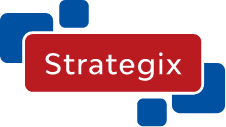The way companies operate has changed over the last few years, especially in recent times. A growingly competitive market has seen technological advances and workplace scenarios a health and safety officer from half a decade ago wouldn’t even recognise. With employee roles and tasks becoming more multifunctional, health and safety requirements and the environment has also shifted, to the extent that we now speak of SHEQ – in addition to health and safety, it has also become important to manage the environment and quality in the workplace.
The role of the SHEQ professional has also become more diversified. No longer a watchman that needs to either avoid or deal with threats by developing policies and systems aimed at (usually) only a few aspects of the work environment; the modern SHEQ professional needs to keep a constant oversight over all aspects of the business, as SHEQ principles these days apply to and affect the organisation as a whole.
The modern SHEQ professional needs to be the centre of the wheel, managing and monitoring all the spokes leading to the different departments within the company. He or she must be pragmatic enough to be able to see both the bigger picture, yet astute and organised enough to manage the smallest details.
Managing these smaller details should be delegated to designated employees chosen for their ability to thrive under stress, handle responsibility effortless and remain cool in all circumstances. These “mini” SHEQ professionals can then in turn form work force groups to implement the now expansive SHEQ policies and procedures, secure in the knowledge that the commander of the SHEQ forces are 100% in control and that generals know exactly what they are doing in the different departments of the company, e.g. security, facilities, HR, quality assurance, financial risks, business continuity, employee wellness, engagement, ethical practices and so on.
All these ultimately contribute to the short- and long-term mental and physical wellness of the company.
By delegating some of the responsibilities in a strict, responsible manner, the modern SHEQ professional can steer the ship safely without fear of missing the odd detail or be too preoccupied with problem one here that he or she misses problem two over there. SHEQ must become embedded in company culture and become a priority as well as a responsibility of all employees.
To ensure that SHEQ becomes part of the embedded culture at your company and gets the buy-in of all employees, inspiring them to become SHEQ professionals under the leadership of the designated head SHEQ professional.





